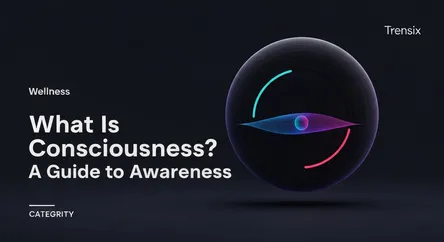Wellness
What Is Consciousness? A Guide to Awareness

Explore the concept of consciousness, why it's a key topic in wellness, and how understanding your own awareness can improve your well-being.
What is it?
Consciousness is your individual awareness of your unique thoughts, feelings, memories, sensations, and surroundings. Essentially, it is the state of being aware of both your internal self and the external world. This includes everything from the feeling of the sun on your skin to the complex emotions you experience. While it's a fundamental part of being human, there is no single agreed-upon definition, and it's a subject of ongoing study in philosophy, psychology, and neuroscience. Some theories see it as any subjective experience, while others focus on how the brain processes information to create that experience.
Why is it trending?
The concept of consciousness is increasingly popular in wellness because of a collective shift towards prioritizing mental health and mindful living. Practices like mindfulness and meditation, which are designed to heighten conscious awareness, have become mainstream tools for managing stress and improving mental clarity. This trend reflects a growing understanding of the mind-body connection—the idea that our thoughts and emotions can significantly impact our physical health. As people seek more holistic and authentic approaches to well-being, exploring one's own consciousness has become a pathway to personal growth and a deeper sense of connection.
How does it affect people?
Understanding and cultivating consciousness can have a profound impact on personal well-being. By developing greater self-awareness, individuals can better recognize and manage their thoughts and emotions, leading to reduced stress and anxiety. This heightened awareness fosters a stronger mind-body connection, potentially improving physical health outcomes by addressing deep-seated emotional patterns that may contribute to illness. Engaging in practices that expand consciousness, such as mindfulness, helps people become more present and less reactive to life's challenges. This can lead to improved mental health, greater emotional regulation, and an overall enhanced quality of life.